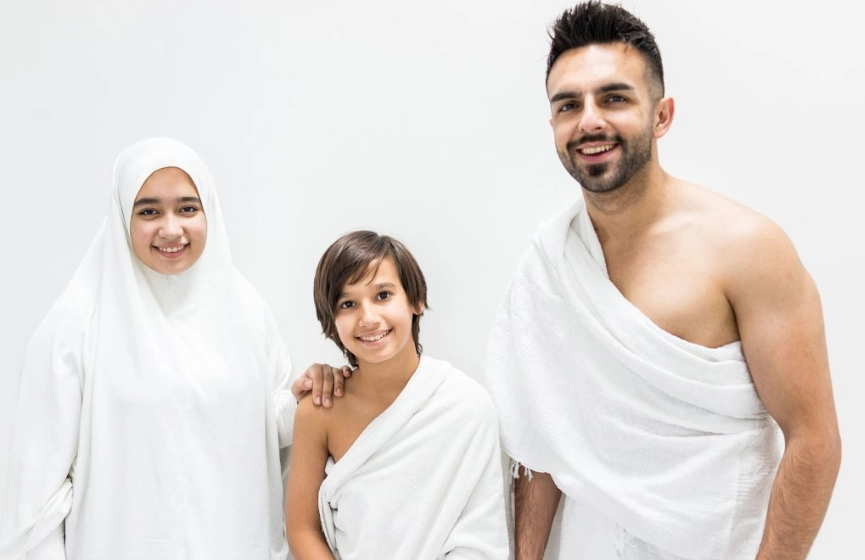The state of ihram is an important part of the spiritual journey during Hajj and Umrah. When pilgrims enter ihram, they take on a special sanctity and code of conduct. An integral part of this is following specific guidelines regarding clothing and self-care.
For women, ihram involves maintaining modesty and simplicity while observing religious restrictions. However, women’s needs are considered in interpreting the rules. The code allows balancing spirituality with practical requirements.
Clothing Guidelines
- Women’s ihram clothing should be loose, comfortable and non-revealing of the shape of the body. Most women don an abaya, a long robe covering the whole body, paired with a hijab headscarf. While white is preferred, any sober color is acceptable.
- Tight or figure-hugging garments are prohibited, along with sheer, see-through or decorated fabrics. For upper body cover, some women opt for a loose shirt or jacket over the abaya. Any clothing worn beneath the abaya – like pants or a dress – must also be roomy and non-transparent.
- No jewelry, sequins, embroidery or trimmings can adorn ihram outfits. Fragrances, cosmetics and perfumes are also not permitted. Simple slippers or sandals without ornamentation should be worn.
- Private parts must be covered, but hands, face, and feet can be exposed. Within these guidelines, women can dress for comfort according to weather conditions. The key is maintaining modesty and avoiding fanciness.
Personal Care Restrictions
- In addition to dress, ihram requires avoiding scented personal care products, cosmetics and fragrances. Any lotions, soaps, shampoos or creams used should be completely unscented.
- Trimming nails, plucking eyebrows, or removing other bodily hair is prohibited during ihram. Any form of makeup, nail polish, mehndi or hair dye cannot be applied to hands or face. However, using kohl or surma in the eyes is permissible.
- Medically necessary medications, injections or treatments for health conditions are allowed as needed. To protect skin from sun or wind exposure, women may use plain, non-fragrant oils or creams on the face and hands.
- Maintaining hygiene through bathing or washing with plain, unscented soaps is encouraged. Just avoid heavily scented products. Oral care like using miswak sticks is also permitted.
Conclusion
In essence, ihram has a specific protocol for women focused on modesty, simplicity and avoiding distractions from worship. While following guidelines faithfully is ideal, women can adapt based on personal needs. The sincerity of intention and purpose of heart matter most.
By removing focus on outward appearance, ihram shifts emphasis to the inward spiritual journey. With the right mindset, women can dress and care for themselves in a way that enables meaningful Hajj or Umrah.



